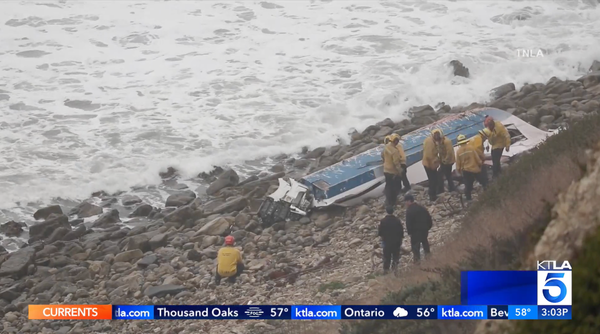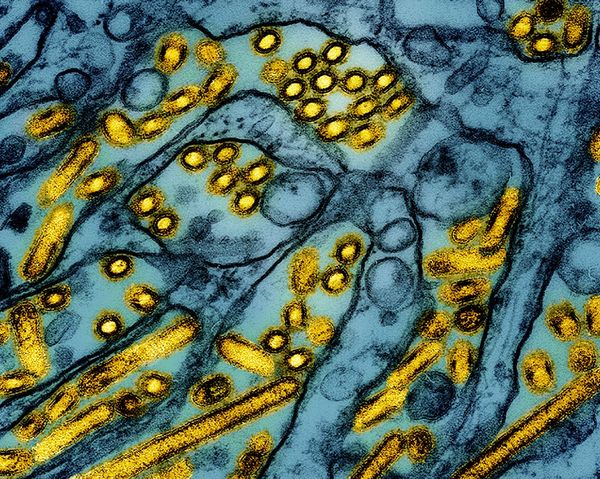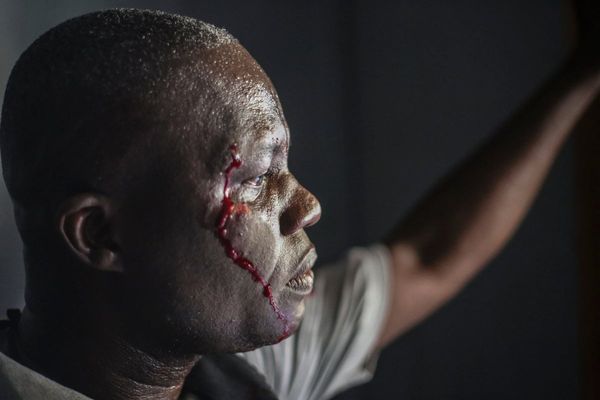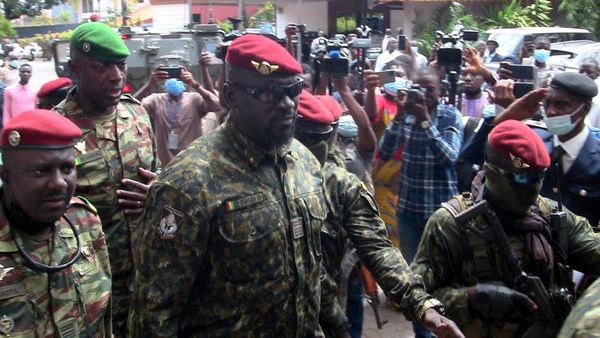Sundays are religious – and not only for the churchgoing. Many Americans bow down and pray as they watch their football team battle it out on the gridiron. Those four hours on Sunday are sacred, but what about the other thousands of hours pro players spend off the field?
Derrick Morgan, linebacker for the Tennessee Titans, shows what’s possible. More than an accomplished athlete – he’s a savvy investor working hard off the field to align his values with his capital. He partnered up with legendary entrepreneur Gary Vaynerchuk at VaynerSports around a shared alignment – empowering the entire athlete to excel both on the field and off.
In this Icons of Impact interview, I sat down with them to explore grit, entrepreneurship, and what it means to be a 6’4” vegan.

Brendan Doherty: I’m excited to chat with both of you. Derrick, why don’t we start with you – did you always know you wanted to be a pro football player?
Derrick Morgan: At first, I was just playing football because I was good at it. I started taking this seriously around 9th grade when I heard I could get a scholarship for playing. At the time I had no way of paying for college. I was looking at football as a way out. I realized I could get a free education if I committed everything towards football.
Doherty: Our earliest days are so influential. Who do you two consider your early role models?
Gary Vaynerchuk: My mom first and then my dad. The first 14 years, I was very deep in my mom’s world because my dad worked all the time and when I started working with my dad at my family business, I got to see my dad. They have different strengths and weaknesses – I focused on and admired the things I appreciated from them.
Morgan: My role models were my grandparents and my mom. They were always stressing the importance of education. Growing up, I couldn’t do anything before I did my homework
Doherty: Derrick, lets fast forward to the night the Tennessee Titans drafted you. What was going through your mind when you were picked?
Morgan: Basically, I felt that I had made it. The draft was a combination of all my hard work, and that was my initial thought on stage. I had this illusion that once I got to the NFL, all my problems would go away – but that wasn’t really the case. What I didn’t realize was it was just the beginning.
Doherty: Gary, have you ever felt that feeling – having a success only to find the real work is ahead?
Vaynerchuk: No, that hasn’t been my mindset. To me, I’ve never been good at smelling roses, I’ve definitely never gone into “damn, I made it.” I actually wish that I would be more into “huh, I did a little something.” For me, it’s overcorrection in the other direction.
Doherty: Derrick, you’ve mentioned to me that were some hardships in your career. What are some low points and challenges in your journey as a pro athlete?
Morgan: Right off the bat, my biggest challenge was tearing my ACL in my rookie year and having to make a comeback back from that. I had never had any serious injuries in my life. As a 21-year-old, in the NFL, I thought I was invincible. To have that type of injury right off the bat was one of those things that brought me back down to earth and humbled me. It allowed me to build character within myself. It was a tough experience that altered the trajectory of my football career, but I think overall it was a blessing. Being injured slowed me down and forced me to put things in the right perspective. It was right around the time I had my son so it was definitely a learning experience. I think it made me better.
Doherty: We often become our best, even if not right away, because of life’s downbeats. I can only imagine you going from the top of the world to having an injury and a new son. Suddenly, you’ve gained a new higher purpose too.
Morgan: I went from only thinking about myself to now having a mouth to feed and a little baby who have to be responsible for.
Doherty: Everything was no longer about Derrick.
Morgan: Exactly!

Doherty: Gary, what were some of your low points or biggest challenges as an entrepreneur?
Vaynerchuk: My school years were some of the biggest challenges in my journey as an entrepreneur. That twelve-year period from first grade to 12th grade, realistically probably third grade or fourth grade, when it was really apparent to me. It was really hard not being able to be an entrepreneur full time. Once I’ve been able to be one, there are all the same struggles that every entrepreneur goes through – loneliness, the pressure of having everything on your shoulders. But honestly, those things come naturally to me. They are very comfortable for me. I like them and I’d have it no other way. It would almost be pandering if I said those things because the reality is, the alternative would crush me. You know – working for someone else, or being in school, or being in a corporate environment. It would suck my soul. Entrepreneurship is hard, but so is singing and playing basketball and many other things that certain individuals come along and actually have natural talent. I feel like I have natural talent in entrepreneurship. The hardest part was not being able to do it.
Doherty: One trend today that I appreciate is valuing people for their many dimensions. This is true for many of today’s best athletes. In this short conversation Derrick, you’ve been a grandson to inspiring grandparents, a caring father, an NFL player – and I know you’re also an investor and businessman. I’ve read that 70 percent of pro football players face bankruptcy after retiring. I think for most for most folks that’s surprising, staggering, and also really sad. Gary, at VaynerSports I think you take a different approach than most companies in empowering and managing the “whole” athlete?
Vaynerchuk: It’s the reason we got into the business. We think it’s a 70-year relationship when we sign these athletes when they’re 21 – 22 years old. We wouldn’t even be interested in it if our equation, our relationships, our reason for being, didn’t extend after 3, 6, 9, 14 years. We manage it as a religion. It’s the only reason we’re in the business.

Doherty: I’m curious Derrick, when did you first think of yourself as an investor and businessman?
Morgan: It all started around my second or third season in the NFL. I started taking advantage of my offseasons and branching out my network. I started by asking a lot of questions about my finances. Initially, I had this notion of trying not to ask any questions that would make me look stupid. I quickly got out of that mentality.
Doherty: How did you make that shift? How did you know to do that?
Morgan: I just took a critical look at myself and asked what was I gaining from that? I was gaining the appearance that I knew everything, and at the end of the day, I had no idea. I had no knowledge. I had to swallow my pride and just start asking a whole bunch of questions around my finances and how my money was working. I started educating myself on the basics of finances and investment strategies. I had one of my advisors say I ask the most questions out of any of his clients, but I didn’t care – my argument was that it’s my money and I want to know what it’s doing. I told him he was going to sit on the phone and explain to me where my money’s going. And I won’t feel like I’m bothering him because it’s my money. As my knowledge expanded, I started to look at alternative investments beyond just stocks and bonds to more direct investments. This was around the time that Facebook’s value was everywhere, and the tech world was becoming sexy. It was an experience that shifted my perspective on money and how to build wealth.

Doherty: Gary, do you see a clear connection between sports and entrepreneurship?
Vaynerchuk: Sports and entrepreneurship are extremely similar, way more similar than it’s being talked about in the culture. There’s winning and losing, there’s a lot that goes on behind the scenes that aren’t being talked about behind the scenes.
Doherty: How have you balanced family and an exploding career of entrepreneurship?
Vaynerchuk: I have balanced family and a career of entrepreneurship with intent, effort and lack of judgment. What I mean by that is focusing on my intent – to do the right thing for myself and for my family. Focusing on lack of judgment, which is the biggest thing I think most people struggle with, on a day-to-day basis, week-to-week basis, month-to-month basis, even year-to-year basis. I think many are over critical of themselves in some sort of ideology of balancing. Those two things really stand out.
Doherty: Derrick, one thing I really enjoy about you is you align your values with your work, your investments, your family life. It’s inspiring to see you walk-the-walk on the things we care about. Tell me a little bit about how you first realized that there were ways to align your capital with your values and actually solve those specific challenges.
Morgan: I watched the documentary 13th. This was right around the time of the NFL protests, and they spent a lot of time in the documentary talking about private prisons. I knew we were one of the most heavily institutionalized countries in the world bud I didn’t know about private prisons. They’re publicly traded companies, so you could very well be investing in them if you didn’t know your portfolio. That sparked something within me and I immediately reached out to my advisor and made sure I wasn’t involved in that. I also read Morgan Simon’s book Real Impact and reached out to her. Morgan actually came out to Nashville, and we talked through my goals, and she explained in detail the whole impact investment industry. From that conversation, we started looking at the different investment options, and I really have a passion for education, equality, entrepreneurship, and upward mobility. We did a couple of investments into companies supporting minority entrepreneurs.
Doherty: Gary do you do the same, seek to align your capital with your values?
Vaynerchuk: Probably. I think that most of my capital at this point goes back into my own businesses, which I’m in control of, and then I give my capital to non-profits. I would never support something I don’t believe in. At the same token, I’m comfortable with businesses being in business and not having an altruistic or higher purpose. I’m more than capable to take my profits and deploy them into things I care about. I think that a lot of people bleed business interest, altruism, or ideology, and I actually think that comes along with peril of the business and the peril of the ideology. So, yes from the standpoint I would never support something I don’t believe in, but it’s not something I need to see as part of the equation when I’m investing in businesses.

Doherty: Derrick, you’ve mentioned before that investing for you is about wealth creation but also building a legacy. Is that what motivates you?
Morgan: I want to teach my kids these principles and pass them on to people, but I don’t really think about myself in this. I’m just thinking about how I can help others and give back. I’ve been blessed with resources, so it’s my responsibility to use those resources responsibly.
Doherty: You’ve mentioned the word legacy before, but maybe that’s not even the right word. It’s more a living legacy or a life of service. Having capital – and that may be financial capital, social capital, or other forms – is really just a way to help others around us. With your higher profile, and others who have similar platforms to shape our culture, do you see this as a gift or a responsibility?
Morgan: I think I have some type of obligation to pass down knowledge and spread awareness and not keep it to myself. It might not be for everybody but at the very least educate yourself on it.
Doherty: One of my last questions is about food as fuel. Many of the folks reading this might think as a 6’4” linebacker for the Titans that you’re crushing meat-based protein on the daily. Can you explain your approach to wellness and food?
Morgan: Over my whole career I’ve been on a continuous quest to better myself. I haven’t been content in any aspect of my life. Every offseason I find ways to improve. I did some consulting with the nutritionist on my leg and was educated on a plant-based diet as it relates to overall health and performance recovery. Slowly but surely I ended up cutting out all meat and byproducts of dairy from my diet, and my wife followed too. My wife’s a chef, and she actually got very creative in this space. She started creating dishes that were very familiar to somebody not on a plant-based diet – like mac n’ cheese, waffles – normal foodie options. It helped to clear up some health issues she was experiencing too, so we’ve been on that ever since. It’s been almost two years now and a great process.
Doherty: Inspiring – I appreciate you both joining me today.







